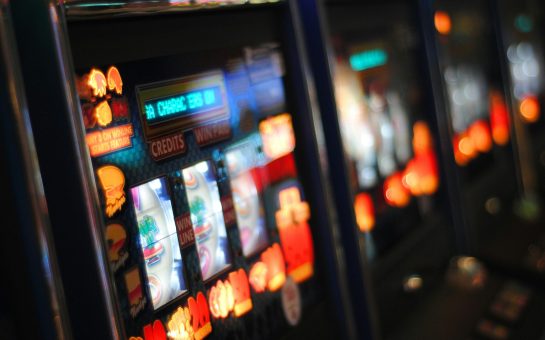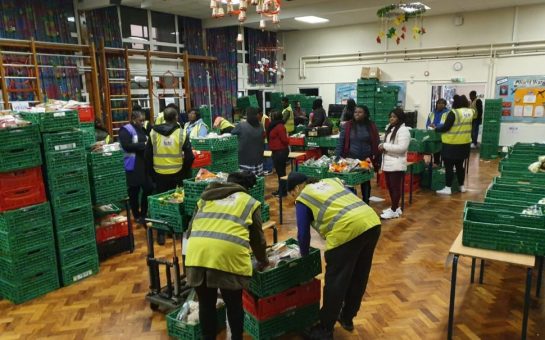Crass, money-talking, dialogically-nimble dramas have been some of the biggest hitters on TV in recent years.
We had Succession, the quick-witted HBO drama which heavily riffed on the Murdoch dynasty.
This was swiftly followed by Industry, the class-A indulging, panic attack-inducing, commentary on the frenetic and morally-bankrupt culture of the trading floor.
Yet Beru Tessema’s new play Wolves on the Road, being performed at the Bush Theatre in Shepherd’s Bush, fills a niche in the market, with its commentary on the subterranean world of Bitcoin.
Bitcoin and cryptocurrency has become somewhat of a taboo in mainstream media, in part because it has come to represent a life-raft for washed-up celebrities who take to Instagram live to wax lyrical about the benefits of investing in NFTs, and also because most people can’t understand why acquiring a cartoon image of a monkey is lusted after in the community as an unimpeachable status symbol.
Wolves on the Road, however, explores the aspirational aspect of cryptocurrency and Tessema was inspired to write the play after seeing how crypto captivated young men from underprivileged backgrounds.
He said: “I was struck by how popular crypto became in my community during lockdown.
“I was also thinking about what happened with FTX.
“I wanted to put characters like Manny and Abdul on stage because we rarely see such characters in a context beyond street or sports drama.”
He added it was important to him to represent the experience of people who come from environments similar to him.
For the rambunctious but emotionally immature Manny, played by Kieran Taylor Ford, crypto is his ticket to financial independence as it reinvigorates his sense of self-belief by projecting a future of self-determination.
One of the play’s strongest suits is the way it depicts the promise of social mobility which draws people to Bitcoin to begin with.
At the play’s outset, Manny’s best friend Abdul, played by Hassan Najib, has been trading Bitcoin for months and has started to profit handsomely.
He has no professional qualifications, as Manny points out, and thus trading in Bitcoin is a means of making money, uninhibited by his socioeconomic circumstance.
Manny yoyos between questionable business schemes, often making financially irresponsible decisions which leave him having to be bailed out by his mother, played by Alma Eno, or suffocated by a mound of bootleg designer goods.
And so for him too, his first crypto-trade is intoxicating, conjuring £1,000 seemingly out of thin air.

Metatheatrical elements are astutely used in the production when Devlin, the mastermind of DGX, the cryptocurrency platform that Abdul and Manny become associates for, gives a talk to the audience.
Devlin, played by Jamael Westman to humorous but punchy effect, delivers a messianic speech, ensconced in the ego-stroking glow bestowed by a TED Talk-style microphone.
It is an anti-colonialist war cry in which he rebukes corporations that charge extortionate fees to those trying to send money to Africa from the UK.
He follows on unveiling a new feature of DGX where people can transfer money abroad for no extra fee, promising digital and financial inclusion for all.
As some twitters of agreement emerged from the audience, Tessema demonstrates the ease which, even we, the inherently sceptical audience, buy into the idea of Devlin’s noble cause.
Yet when Mannie and Abdul later find themselves floundering, we realise they have ultimately been investing in a fantasy.
The Wonka-esque royal purple and gold colour scheme of the DGX logo?
Perhaps a mere coincidence, but its similarity lends itself to our understanding that each trade is essentially a reckless gamble in pursuit of the short-term reward, that sugary dopamine hit.
The play experiences its own kind of sugar-crash in the final act.
Having delved into a socioeconomic commentary around cryptocurrency in the first act, you expect that Tessema will hold a mirror up to the whole business at the play’s conclusion, but there is no such return.
The play also seems to dance around the consequences of the plot’s crux.
Indeed, maybe it was too painful for Tessema to depict the anguish of sweet Markus, played by Ery Nzaramba and the boyfriend of Manny’s mother, who had earlier been persuaded by Mannie to invest in Bitcoin with DGX.
Though Markus is shown to be a committed lover, its wholly unrealistic that his sole concern at the play’s conclusion would have been reconciling with his disgruntled beau after ignoring her advice to withdraw from DGX.
As a result, the play fell a little flat for me in its conclusion.
Nonetheless, Wolves on the Road is pacey and entertaining with some thought-provoking moments.
Wolves on the Road is on at the Bush Theatre until 21 December.
Featured image credit: Helen Murray





